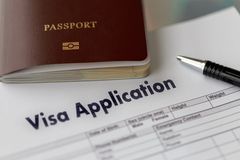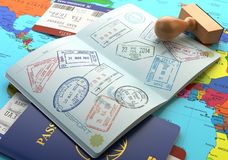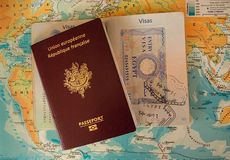In today’s world, traveling has become an integral part of our lives. Be it for leisure or work, many of us find ourselves regularly on the move across borders. However, one integral aspect that you may overlook is the safety of your travel documents. Losing these critical papers can turn a dream holiday into a
Visa Policy for Nigeria
The Nigeria visa policy identifies travel restrictions for the African country for foreign nationals from all over the world. It determines who may enter the country without a visa and which citizens need a visa for Nigeria.
Regardless of whether or not a visa for Nigeria is required, all foreign visitors to the country are required to have a passport with a minimum validity of 6 months to gain entry.
Current regulations state that approximately 60 nationalities do not need a visa for Nigeria for varying periods of stay. Nationals of a large number of countries in Africa are granted visa exemption for Nigeria for an unlimited period of stay due to freedom of movement agreements.
Business travelers from roughly 120 countries are eligible to apply for an e-Visa for Nigeria through a simple online application, which removes the need to complete extensive visa on arrival paperwork at a border checkpoint.
Applicants for a Nigeria e-Visa for business are able to complete an online form in just a few minutes, upload some supporting documents, and pay a visa fee using a credit or debit card to submit an application. A Nigeria online visa is usually processed within 2 business days, and, once approved, is sent to the traveler via email.
Those eligible for a business e-Visa who wish to visit Nigeria for other purposes are also able to submit an online application for a Nigerian work visa, tourist visa, or transit visa. However, they will still be required to attend a Nigerian embassy or consulate in person to finalize the request. Additionally, around 45 nationalities require a Nigerian embassy visitor’s visa regardless of the motive of travel.
There are not currently any Nigeria visa bans in place for any foreign nationalities.
These different visa types for Nigeria are outlined in further detail below.



